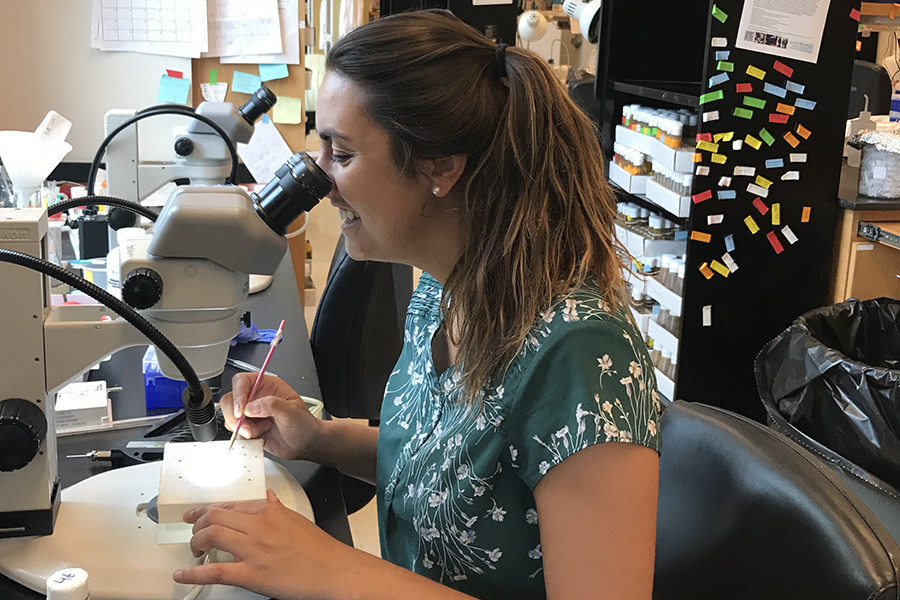Elizabethtown College Biochemistry alumna Colby Schweibenz ’18 was recently awarded the F31 National Institutes of Health (NIH) Ruth L. Kirschstein National Research Service Award (NRSA) Individual Predoctoral Fellowship through the National Cancer Institute (NCI).
Schweibenz, who graduated Magna Cum Laude from Etown with a Bachelor of Science degree in Biochemistry, is a third-year Ph.D. candidate in the Biochemistry, Cell, and Developmental Biology program at Emory University in Atlanta.
 Her thesis research, being conducted in the lab of Dr. Ken Moberg, an established professor of Drosophila genetics, aims to investigate whether a Drosophila steroid hormone receptor coactivator protein, Taiman (or Amplified in Breast Cancer 1, AIB1 in mammals) can act as a super-competitor in developing epithelial tissue.
Her thesis research, being conducted in the lab of Dr. Ken Moberg, an established professor of Drosophila genetics, aims to investigate whether a Drosophila steroid hormone receptor coactivator protein, Taiman (or Amplified in Breast Cancer 1, AIB1 in mammals) can act as a super-competitor in developing epithelial tissue.
“Cell competition is extremely interesting to me because how cells compete with one another in a tissue has direct relevance to cancer cell biology, as well as relevance to developmental biology,” said Schweibenz. “I am really excited to be working on this project to elucidate novel mechanisms of cell competition that could provide insight into cancer emergence and progression.”
During her undergraduate career at Etown, Schweibenz completed her honors research thesis, “Synthesis of Giant Unilamellar Vesicles for Use in Studying the Stability and Permeability of Cellular Membranes,” to fulfill both the requirements for Honors in the Discipline in Biochemistry and the Honors Program. She worked closely with her mentor, Associate Professor of Chemistry Thomas E. Hagan, completing several years of research in his lab.
“I am extremely grateful to Dr. Hagan for his support and encouragement,” said Schweibenz. “It was through his lab that I discovered my interest in scientific research and led me to continue pursuing research in graduate school!”
The purpose of the Ruth L. Kirschstein National Research Service Award (NRSA) Individual Predoctoral Fellowship is to enable promising predoctoral students to obtain individualized, mentored research training from outstanding faculty sponsors while conducting dissertation research in scientific health-related fields relevant to the missions of the participating NIH Institutes and Centers. The proposed mentored research training must reflect the candidate’s dissertation research project and is expected to clearly enhance the individual’s potential to develop into a productive, independent research scientist.

